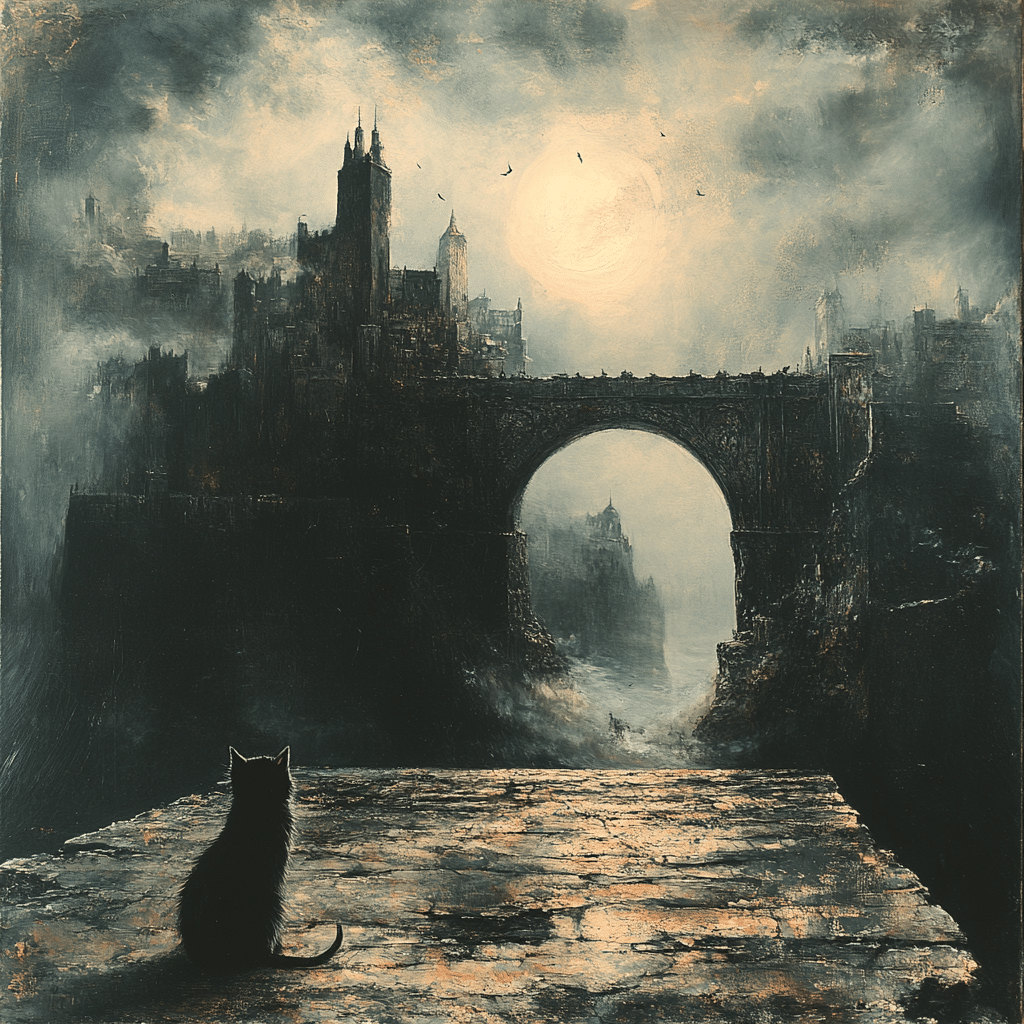Catcliffe’s Historical Significance: Tracing the Early Roots
Nestled in South Yorkshire, England, Catcliffe’s roots run deep into British history. This modest village, first mentioned in the Domesday Book, boasts a name that intriguingly hints at “the cliff where the cats live” or “steep river bank.” Archaeological discoveries suggest human settlement in Catcliffe since the Roman era, adding a layer of historical richness. These ancient roots are further illustrated by medieval records, which detail Catcliffe’s development through centuries.
Early settlers strategically positioned Catcliffe due to its advantageous location near the River Rother. The river’s banks provided fertile grounds for agriculture, pivotal in sustaining the early community. Evidence points to longstanding farming traditions, with remnants of ancient tools discovered in surrounding fields. These historical threads weave a tapestry of a village born of agricultural and strategic significance.
The early records of Catcliffe also highlight its role in the larger tapestry of British history. From Roman times to medieval periods, this village has been a silent witness to the ebb and flow of significant historical events. Its storied past continues to capture the imagination, forming a foundational part of Catcliffe’s identity.
The Industrial Revolution: Catcliffe’s Pivotal Role
The 18th-century Industrial Revolution ushered in a transformative era for Catcliffe, shifting it from a tranquil village to an industrious hub. The crown jewel of this transformation is the Catcliffe Glass Cone, constructed in 1740. One of the oldest surviving structures of its kind in Western Europe, it stands as a testament to the village’s pivotal role in Britain’s industrialization.
The Catcliffe Glass Cone offered a unique look into glass-making craftsmanship. Skilled artisans produced glassware that was both functional and ornamental, making Catcliffe a key player in the burgeoning industry. This structure not only symbolizes Catcliffe’s industrial heritage but also serves as an educational site, drawing historians and tourists alike.
However, the industrial boom wasn’t all smooth sailing. The rapid development brought challenges along with growth. Workers faced demanding conditions, and the environmental impact began to shape the village landscape. Despite these hurdles, Catcliffe emerged resilient, managing to balance industrial progress with community well-being. This resilience reflects the village’s enduring spirit, rooted in its rich history.

| Category | Information |
| Location | Catcliffe, South Yorkshire, England |
| Historical Mention | First recorded in the Domesday Book |
| Name Origin | Possibly means “cliff where the cats live” or “steep river bank” |
| Population | (To be updated with latest census data) |
| Housing Affordability | Generally affordable housing market |
| Primary Education | Excellent primary schools, favored by families |
| Secondary Education | Limited options for secondary education |
| Amenities | Decent local amenities including shops, parks, and healthcare facilities |
| Safety Concerns | Some occasional safety issues reported |
| Major Events | Flooding: Significant floods in 2007 and 2023 |
| 2007 Flood Events | – Residential properties were looted during floods |
| – Public meeting held by Council to discuss response | |
| 2023 Flood Events | – River Rother burst its banks due to Storm Babet |
| – 120 homes flooded | |
| – Volunteer flood warden reported early signs of flooding | |
| Community Response | Active community and Council involvement in flood response and recovery |
Catcliffe Today: Modern Development and Community Spirit
Fast forward to 2024, Catcliffe has evolved remarkably while preserving its historical essence. Modern development projects have enhanced infrastructure, with a conscious effort to retain the village’s cultural heritage. Walking through Catcliffe today, one can feel how seamlessly history blends with contemporary life.
Community initiatives play a crucial role in this balance. Local groups and councillors from Rotherham have spearheaded efforts to maintain Catcliffe’s vibrancy. These initiatives range from improving public spaces to organizing events that celebrate the village’s rich history. One standout effort is the revitalization of local parks, fostering a sense of community and pride among residents.
The village’s sense of community spirit is palpable. This strong bond is nurtured through various activities and events that encourage locals to come together, celebrate, and contribute to the common good. It’s this spirit that encapsulates the resilience and adaptability of Catcliffe’s residents, ensuring the village remains a cherished and dynamic place to live.
The Role of Rotherham Councillors in Catcliffe’s Progress
Catcliffe’s steady development can be largely credited to the dedicated efforts of Rotherham councillors. Prominent figures like Emma Hoddinott and David Roche have been instrumental in driving local projects. Their work ranges from the revitalization of public spaces to educational programs that promote heritage conservation.
Emma Hoddinott has been a stalwart advocate for environmental sustainability and historical preservation. Under her guidance, several green initiatives have taken root, including the creation of eco-friendly parks. David Roche, on the other hand, has focused on educational programs. His efforts have ensured that the younger population remains aware and appreciative of Catcliffe’s historical significance.
These councillors exemplify a balanced approach to rural governance. Their commitment to fostering progress while preserving heritage is a model for other communities. Through their leadership, they have managed to maintain Catcliffe’s unique charm while paving the way for future advancements.

Celebrating Culture: Annual Events and Traditions in Catcliffe
Cultural events serve as the beating heart of Catcliffe’s community life. Among these, the annual Catcliffe Heritage Festival stands out. This vibrant event draws locals and visitors alike, offering a deep dive into the village’s rich history through reenactments, craft exhibitions, and storytelling sessions.
The Heritage Festival is more than just a celebration; it’s a reinforcement of community bonds. Residents of all ages participate, from crafting period-accurate costumes to engaging in historical reenactments. These activities promote a shared sense of identity, rooted in historical awareness and cultural pride.
Alongside the Heritage Festival, smaller events such as local farmers’ markets and craft fairs also enrich community life. These gatherings provide platforms for local artisans to showcase their talents and for residents to connect over shared interests. It’s through these traditions that Catcliffe nurtures a collective spirit and reinforces its historical heritage.
Resilience in the Face of Adversity: Catcliffe’s Response to Natural Disasters
Catcliffe’s resilience has been severely tested by nature’s wrath, particularly during the devastating floods of 2019. The River Rother’s banks overflowed, inundating the village and wreaking havoc. Yet, amid the chaos, the community’s response was nothing short of remarkable, highlighting their unyielding spirit.
In the aftermath, initiatives like the Catcliffe Flood Resilience Project emerged. This project, backed by local councillors and volunteers, aimed to fortify the village against future adversities. The collective effort saw immediate results, from improved flood warnings to reinforced infrastructure, minimizing future risks.
The events of 2019 echo the earlier floods of 2007, where the village faced similar challenges. In both cases, the community’s rapid response and solidarity shone through. These experiences have cemented Catcliffe’s reputation for resilience, demonstrating the village’s ability to face and overcome nature’s forces with unity and determination.
Education and Preservation: The Symbiotic Relationship
The effort to preserve Catcliffe’s rich history extends into educational programs facilitated by local schools and historical societies. Collaborations with institutions such as Rotherham College ensure that younger generations grasp their heritage’s significance.
Educational initiatives include field trips to historical sites, workshops on local history, and interactive sessions with historians. These programs are designed to instill a deep appreciation for the village’s past in its youngest residents. Restoration projects, funded by grants from the National Lottery Heritage Fund, further bolster these educational efforts.
These combined efforts ensure that Catcliffe’s story continues to be told accurately and engagingly. They also highlight the importance of education in preserving historical narratives, allowing residents to stay connected to their roots while looking ahead to future possibilities.
Sustainable Development: Balancing Progress with Heritage Conservation
Sustainability is a key focus in Catcliffe’s ongoing development. Projects like the eco-friendly Catcliffe Nature Park exemplify the village’s commitment to preserving natural landscapes while providing modern amenities.
This dual approach enhances the quality of life for residents. Eco-tourism initiatives have flourished, attracting visitors interested in sustainable travel. These visitors contribute to the local economy while appreciating the village’s efforts to maintain its environmental integrity.
Balancing progress with heritage conservation is no small feat. It requires careful planning and a deep understanding of the village’s historical and cultural context. Yet, Catcliffe manages to navigate this terrain with finesse, ensuring that development projects respect and integrate the village’s unique character and heritage.
Future Prospects: Catcliffe’s Vision for the Next Decade
Looking ahead, Catcliffe’s blueprint for the future emphasizes innovation intertwined with historical preservation. One exciting initiative is the development of digital heritage trails. Leveraging augmented reality, these trails aim to bring the village’s history to life for both residents and visitors.
Rotherham councillors continue to play a pivotal role in these future projects. Their active involvement ensures that new initiatives are well-supported and align with the village’s long-term vision. This forward-thinking approach positions Catcliffe as a model of rural development.
In embracing its legacy while forging ahead, Catcliffe exemplifies a village where history and modernity coexist harmoniously. Through community efforts, heritage conservation, and forward-thinking leadership, Catcliffe continues to flourish, embodying resilience and rich history for future generations.
In summary, Catcliffe is not just a village with an illustrious past but a community with a vibrant present and a promising future. From its deep historical roots and industrial significance to modern development and cultural celebrations, Catcliffe’s story is one of rich history and resilience.
Catcliffe: Village of Rich History and Resilience
Intriguing Facts About Catcliffe
Catcliffe is a small yet fascinating village in South Yorkshire, boasting a vibrant tapestry of history and community spirit. Did you know that Catcliffe is home to one of the oldest glass cones in the world? Built in 1740, this glassworks cone is a marvel and serves as a reminder of the village’s industrious past. People come from miles around to admire this piece of history, akin to the gathering at Manchester Arndale for a shopping spree.
Interestingly, the name “Catcliffe” might indirectly connect to Intertek email, with “cat” signifying the presence of wild cats in ancient times and “cliffe” denoting a cliff or hill. While these roots are somewhat tenuous, they certainly add character to the village’s etymology. In the realm of peculiar names,Catcliffe” competes with the likes of Eaglescliffe.
If you’re planning to swing by, it’s worth noting that Catcliffe once had a brush with fame thanks to its glass industry, somewhat like the splash made by Morgana The Kissing bandit who famously disrupted major league baseball games with her antics. This small village wasn’t swept under the rug; the glassworks were integral to Europe’s industrial journey.
Navigating through Catcliffe’s many sights can be as thrilling as trying out a new game vault download. Think of it as a journey through time, each landmark an achievement unlocking stories from the past. Don’t miss the chance to explore this unique village—its resilience and historical richness aren’t just buzzwords—they’re woven into the very fabric of Catcliffe.

Is Catcliffe a nice place to live?
It’s got its ups and downs. The village strikes a balance with affordability, decent amenities, and excellent primary schools, attracting many families. But keep in mind there are limited secondary school options and occasional safety concerns.
Why is Catcliffe called Catcliffe?
Catcliffe’s name traces back to the Domesday book, and it’s believed to mean either “the cliff where the cats live” or “steep river bank.”
When did Catcliffe flood?
Catcliffe experienced significant flooding in 2007, notably involving the looting of residential properties during this natural disaster.
Is Catcliffe built on a flood plain?
Yes, Catcliffe is on a flood plain. A volunteer flood warden mentioned that a flood plain near his house was swamped before about 120 homes got flooded after the River Rother burst its banks following Storm Babet.
What is the population of Catcliffe?
There’s no clear data right now on the exact population of Catcliffe.
Is Rochester IL a good place to live?
Rochester, IL is generally considered a good place to live with a strong community vibe, good schools, and a family-friendly atmosphere.
What did boundary mills used to be?
Boundary Mills used to be a collection of old textile mills before being repurposed into the retail outlet it is today.
What river is in Catcliffe?
The River Rother runs through Catcliffe, and it played a part in the flooding incidents.
Has Catcliffe flooded today?
As of today, Catcliffe hasn’t flooded, but it has faced flooding recently after Storm Babet caused the River Rother to overflow.
What caused the 1953 flood?
The 1953 flood was primarily caused by a combination of a high spring tide and a severe European windstorm, which together created catastrophic flooding.
What are they building at Catcliffe?
There’s currently no specific information available on what is being built at Catcliffe right now.
Where is the largest floodplain in the world?
The Amazon Basin hosts the largest floodplain in the world, spreading over parts of South America.
Can you build a house on a flood plain in Texas?
Yes, you can build a house on a flood plain in Texas, but there are strict regulations and building codes to manage the risks involved.



